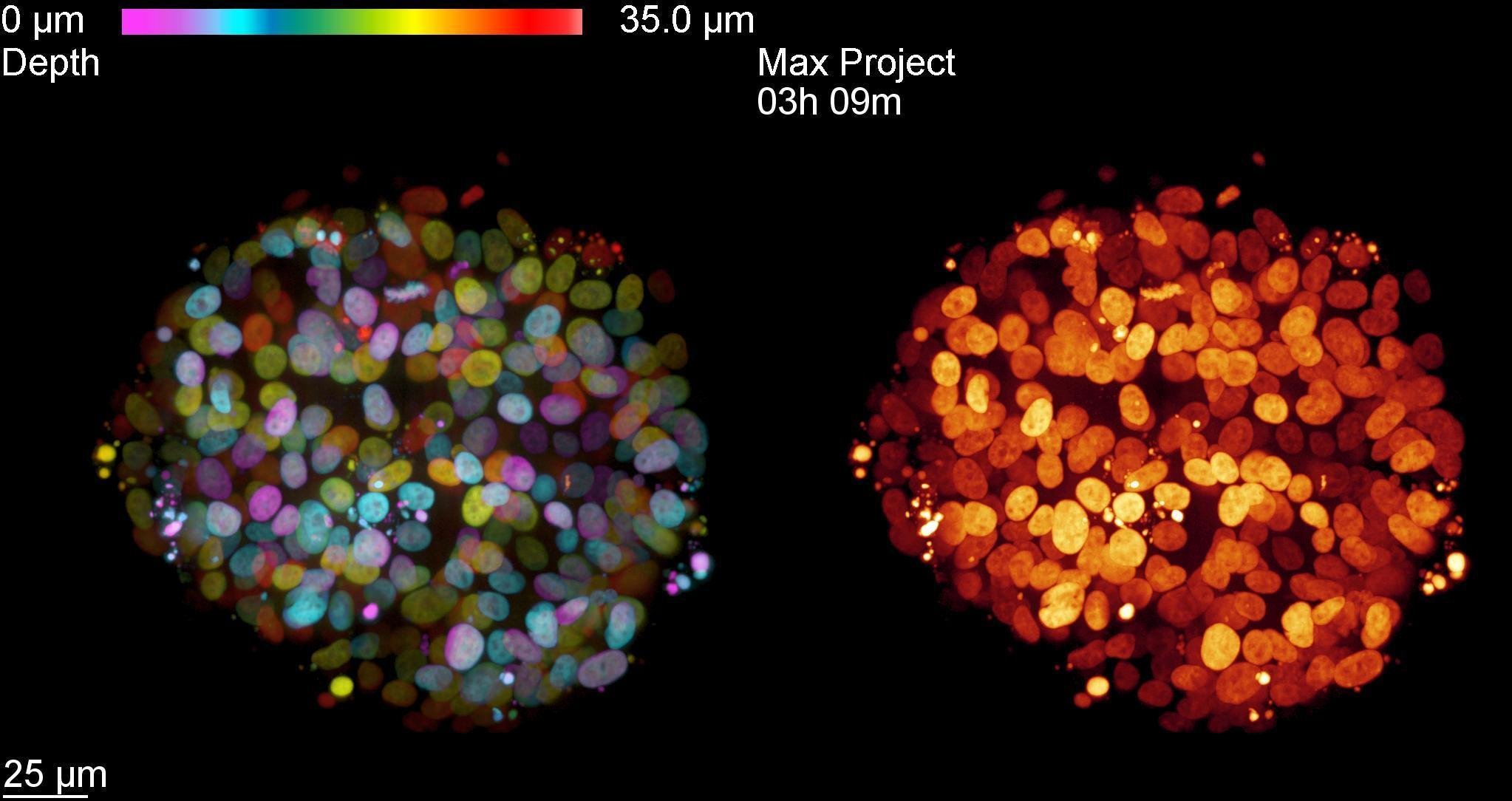Seven projects in the Organ-on-Chip Showcases call have been awarded a grant by Top Sector Life Sciences & Health (Health~Holland). To stimulate basic research on this technology, the Top Sector has been working together with the Dutch Institute for human Organ and Disease Model technologies (hDMT) to invest in new R&D projects. Hugo Snippert (UMC Utrecht and Oncode Institute), together with industry partner VyCAP, received one of the awards for their project ‘Capture tumour evolution on chip’.
Goal of the project
Cancer biologists predominantly analyse fully-grown malignant populations to infer their genetic evolutionary history. As such, key questions such as the extent of negative selection and mutation rate per cell division remain unanswered. To improve the understanding of tumour evolution, a new microfluidic platform based on VyCAP’s proprietary technology will be developed and tested. The goal is to combine live-cell imaging of growing tumour organoids with single-cell genomic analysis of all the individual cells that originate from the imaged tumour.

Collaboration between fundamental science and industry
Hugo Snippert, UMCU: “It all started with my collaboration with Leon Terstappen, who works at Twente University and who is leading the Medical Cell Bio Physics group. He developed and tested several advanced cell analysis devices to capture circulating tumour cells from blood. VyCAP is closely related to MCBP and a University of Twente spin-off company. The company offers their puncher system, which is an innovative and fast solution to isolate single cells such as circulating tumour cells or cells from organoids for genomic analysis. When the Health~Holland call was announced, VyCAP approached us to apply for the grant together.”
Joska Broekmaat, VyCAP: “The reason we wanted to work together with Hugo on this project, is because he is a highly ambitious researcher at the forefront of fundamental stem cell, imaging and organoid research. By combining his knowledge with VyCap’s technology, the parties aim to find microfluidic solutions to explore unchartered territory at the interface between live-cell biology and single cell genetics.”
Hugo: “This project is very important, because the microfluid technology gives me the opportunity to isolate virtual all the cells that exist in a mini-tumour and reconstruct their evolutionary history with cell cycle resolution. To cooperate with an industry partner like VyCAP is very important for me. Thanks to their technology, I can now for instance study negative selection during tumour evolution and get a better insight into the growth of a tumour. In addition, they provide pro-active support to optimize our use of their technology.”
Joska: “Hugo has been building his own group over the last years and has excellent ideas on how to reach his goals and act at the forefront of his field. By implementing, testing and validating new technologies with the brightest minds in his group, Hugo is able to help us improve our product and develop it in a way that will benefit other researchers too. Together we can define new solutions to overcome current technical hurdles.”
Working with Oncode Institute
Hugo: “Though this call was not related to Oncode Institute directly, I was very pleased with the support I received from the Valorization Team. Veerle Fleskens and Ian Bell, who work as Business developers at Oncode Institute, gave great support to fine-tune our proposal and make sure that the valorization angle was perfectly covered.”